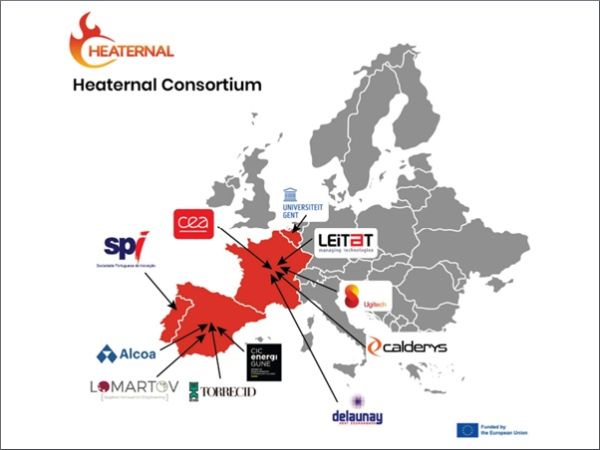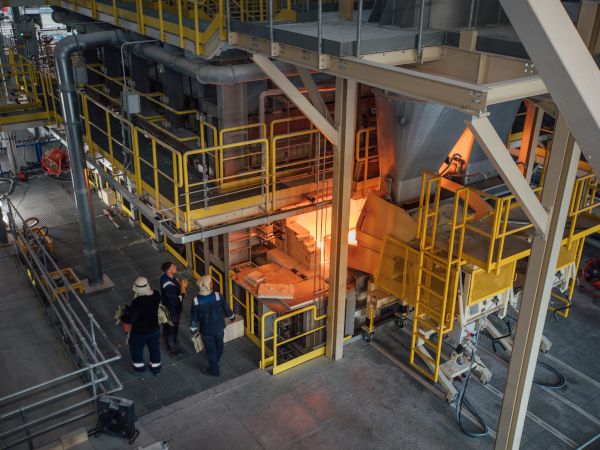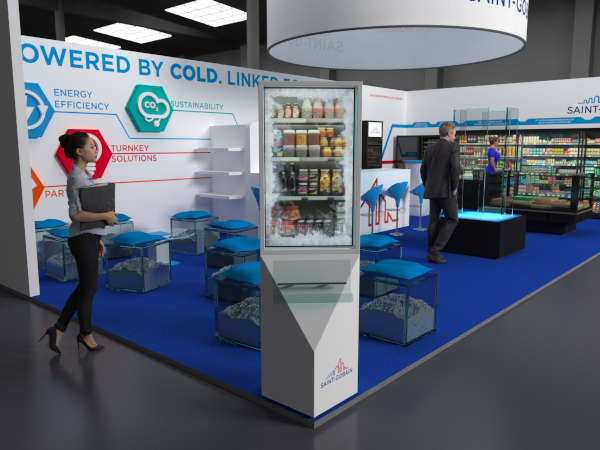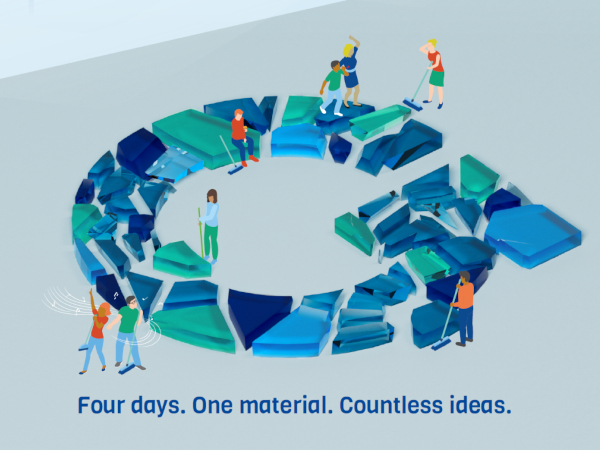
Date: 5 June 2025
Since its launch in May 2023, Calderys has been participating in HEATERNAL, an EU-funded[1] project working to develop a viable decarbonization solution using thermal energy storage. As the only refractory maker involved in the HEATERNAL project, Calderys has been playing a pivotal role in testing, selecting, and prefabricating the refractory solution for the Thermal Energy storage (TES) applications.
This resulted, in March of this year, in a significant milestone with the successful selection of the refractories for the energy storage unit. In collaboration with the University of Ghent and CEA (French Alternative Energies and Atomic Energy Commission), thermo-mechanical studies have been conducted to digitally validate the system's integrity for both final and test units. Additionally, Calderys has manufactured some refractory samples which will be subjected to testing, in order to evaluate the stress level and the fatigue to ensure the robustness of the design.
“The selection of refractories is a strategic phase in the project as it will ensure the use of optimal materials for enhanced performance and durability. The thermal energy storage concept stands on a hybrid Ceramic / Phase Change Material (PCM) mechanism. Calderys expertise is crucial in developing a compatible combination of PCM and refractory materials, while ensuring that the system operates reliably and safely under extreme industrial conditions and repeated thermal cycles.” says Bertrand Hiot, EMEA Technical Support Manager Iron at Calderys.
The HEATERNAL project is currently undergoing final design validation of its storage unit, following the successful finalization of the pilot design. Looking ahead, the compact pilot unit will be assembled at CEA with the collaboration of Calderys. This unit will then undergo rigorous testing. Completion of the pilot storage unit is expected in the next two months, with a target storage capacity of 50 kWh.
More about the HEATERNAL Project
The HEATERNAL project unites a consortium of four leading public research organizations alongside seven private companies, including Calderys. Each partner fills a specific role and cooperates closely with the others. Their collective goal is to create a prototype, and model an innovative heat energy storage system, which would enable the reduction of fossil fuel use in high-temperature industrial processes, with industrial waste heat and electricity made from renewable sources.
HEATERNAL (standing for High tEmperAture ThErmal stoRage for iNdustrial AppLications) is coordinated by the CEA, a key player in technological research for industry, development and innovation, notably in low carbon industries.
Long-term, the HEATERNAL project aims to revolutionize industrial energy storage through advanced phase-change materials and 3D-printed designs, significantly increasing energy density compared to traditional ceramic bricks. These efficient, compact storage units promise rapid implementation, quick return on investment, and reduced energy storage costs. HEATERNAL seeks to drive investment in affordable new materials for medium to high-temperature heat storage, reducing reliance on fossil fuels and enhancing overall energy system efficiency.
Bruno Touzo, Global Vice President, Innovation & Technology at Calderys, comments: "I’m excited to see our team of experts participating in the HEATERNAL research project and placing their refractory expertise at the service of the energy transition. This project supports our commitment to developing energy-efficient industry solutions and advancing high-temperature process decarbonization. The insights gained from HEATERNAL will eventually deliver operational and cost benefits to our customers in the iron & steel, cement, and other high-temperature industries, aiding them in reducing their carbon footprint both in Europe and worldwide.”
By addressing the challenges of industrial heat decarbonization, HEATERNAL will play a pivotal role in the industrial sector's shift towards sustainable energy solutions. This initiative is expected to significantly reduce CO2 emissions from industrial processes across the EU.*
Find the PDF version here
[1] European Funding entity: CINEA (European Climate, Infrastructure and Environment Executive Agency)
 600450
600450








Add new comment